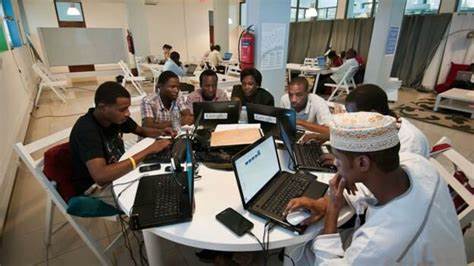THE Director of International Development, Nesta Challenges, Constance Agyeman, says plastics waste management has the potential to create jobs across Africa.
Agyeman identified plastics waste management value chain as one of the emerging viable business opportunities in the world, especially in developing countries of Africa where majority of economically disadvantaged groups could find solace.
Join our WhatsApp ChannelShe stated that an estimated 15 to 20 million people currently work within the recycling sector as waste pickers.
She noted that economic hardship caused by covid19 pandemic worldwide, forced people to adopt unusual business models, adding that the economically disadvantaged groups such as women, children and youth should explore opportunities in the value chain.
Agyeman explained that due to the growing economic importance of the plastics management value chain, the sector from both a personal and environmental perspective offered a huge business opportunity.
She said, “When it comes to plastics, we have all heard of the three R’s, reduce, reuse, recycle. We have seen major developments across Sub-Saharan Africa driving this message.
“We have also seen not only activists demanding a cleaner environment and a plastics-free oceans economy, but we have also seen businesses coming to the forefront of the challenge, solely to develop solutions that will not only be revenue-driven, but also play a key educational role in engaging communities in keeping our environments safer.”
Describing how the informal sector in many African countries especially Nigeria, absorbs major part of the labour force, she noted that small businesses could build economic value around the plastics waste value chain, particularly those anchored by women and youth, due to their significant role within the sector.
“The solutions are in the value of the so-called circular economy, its impact and how available resources can be used to capitalize on the three R’s – reduce, reuse, recycle. But in order to do this effectively, small businesses need to understand the importance of adopting innovation practices, business models, better ways to engage with the experience of women and children and keep them safe,” she added.
Talking about how plastics waste pollutes the environment, she pointed out that small businesses operating in the system could adopt innovative ways of sustainably recycling plastics wastes and earn good returns from it.
Agyeman called for mass sensitisation of the people about the economic potential of plastics waste economy, adding that massive investment in infrastructure and technologies for recycling plastics waste into new products were needed.
She also highlighted the role of Afri-Plastics Challenge Prize, an initiative meant for encouraging people in sub-Saharan Africa to “actively look at solutions, not only for revenue generation, but to bring solutions in plastics waste management, underpinned by putting communities, and the environment as apex deliverables.”
Victor Ezeja is a passionate journalist with seven years of experience writing on economy, politics and energy. He holds a Master's degree in Mass Communication.

















Follow Us